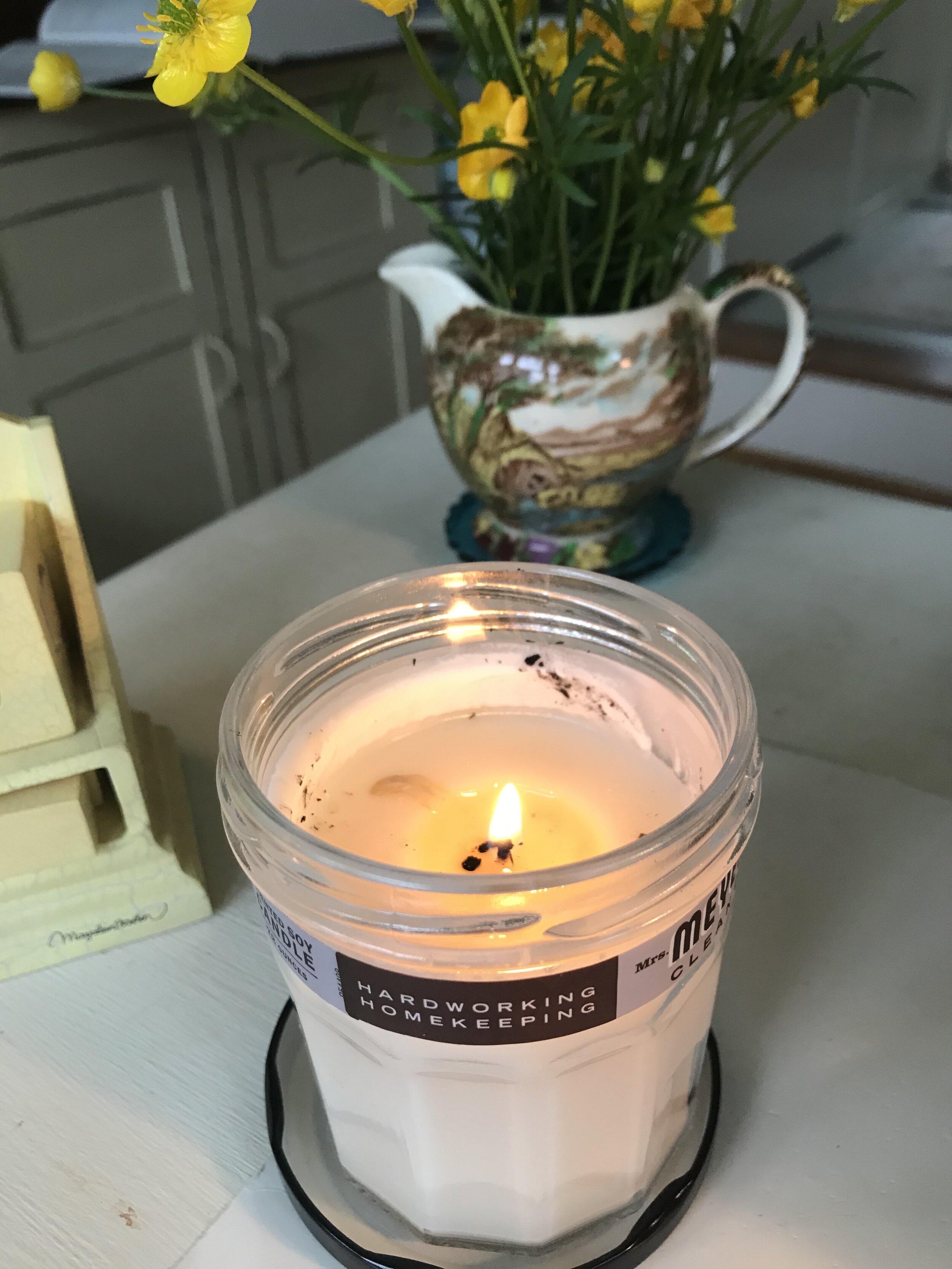Candles
On one of the local radio stations, the host shared an inspirational sermon that she had heard about candles: candles provide light, heat and scent, but in order to do any of those functions they need to be lit and to intentionally burn. The host went on to say that sometimes we might be experiencing a situation that “burns”. It might hurt or feel uncomfortable but that process is sometimes necessary if we are to be useful for others.
I have noticed that some candles burn clean while others seem to leave burnt parts of the wick in the wax which once cooled, becomes a dark blot in the candle. It is only in burning the candle and melting the top layer of wax can that the “bad” spot can be removed and the candle appear “clean”. It becomes a cleansing burn.
There are many analogies in spiritual writings about burning the dross or the refiner’s fire. The idea is that fire helps eliminate “bad stuff” and enhances the “good stuff”. In the Hebrew Bible (Malachi 2: 17- 3:6) there is an image of God coming to refine His people. God comes to judge, to correct injustice and to purify the people. The author is quick to remind that one needs not be afraid. The fire will not destroy. “A refiner's fire does not consume completely like the fire of an incinerator. A refiner's fire refines. It purifies. It melts down the bar of silver or gold.” (attributed to John Piper). When we recognize that sometimes the fire is not a bad thing, we can see the good that might come out of it or at least not fight the circumstance so much.
* From the Timken Museum Website: Novgorod School Tabletka, 15th Century Russian.
Any thoughts of burning make me think of the story of the three devout Israelites in the fiery furnace of Nebuchadnessar: Shadrach, Meshach, Abednego. (Daniel 3: 8-25) Perhaps you are familiar with the story: the three men refused to bow down and worship a golden idol of King Nebuchadnessar. A new law had been enacted to do just that and those who disobeyed were to be thrown into a fiery furnace. The three men refused to worship anything other than their true God and so are thrown into the furnace. As the story is told, the furnace was way too hot so that even the men who had bound the Israelites and threw them in the furnace, were immediately burned. There appeared to be no hope that the men would survive. Yet when they are still alive the next morning, they are immediately removed and it is noted that not even a hair was singed nor did they smell of smoke.
The beauty of that story is the miracle that occurs because of the faith of the three. They trusted that God would care for them and deliver them from the burning fiery furnace. But if not, they still wouldn’t bow down before the golden statue. King Nebuchadnessar watched the proceedings and noticed a fourth man unbound in the furnace. That “man” was God caring for them during the fiery time. God was in the situation with those three just like God is with us in our “heated” situations.
I think of situations that either I, family or friends have endured. Circumstances that at the time burned, hurt and singed us. In looking back, I can see how the burning was necessary- either what was left was pure and beautiful like refined gold or in the process of sharing the difficult experience, others received guidance, compassion, or encouragement much like the benefits of light, warmth and aroma from a burning candle. [Please note, I am not speaking about the difficulties of an abusive relationships. That type of “burning” just leaves a heap of ashes.]
What about you? What has been burning in your life? See anything good? Refiner’s fire? Has the burning been beneficial for others? A light, a fragrance or bit of warmth? An encouragement? A reminder of God always being present?
Don’t shy away from being “burned”- from problems or difficulties. You never know- you and your experience might be the candle or miracle for someone else.
From the Timken Museum website: “This time, the artist chose an Old Testament narrative from the Book of Daniel that is sometimes referred to as Four Men in the Fiery Furnace. It is another story of over-the-top cruel punishment and it also relates to the refusal to worship pagan deities. This time it is heat, not cold that characterizes the torture of the faithful. The Assyrian King, Nebuchadnezzar, has been provoked by his advisers to cast three just men--Shadrach, Meshach, and Abednego--into a flaming pit because they will not renounce their Jewish faith. Specifically, they won’t kneel before the golden idol that is shown in the composition’s upper right. Instead of perishing in the intense flames, however, the men are seen dancing with a fourth figure who miraculously appears in the furnace with them. Theologians debate whether this fourth presence should be interpreted as an angel, or the son of God: in this instance, the Russian artist treats the figure as an angel. The feast day of Daniel and the so-called Holy Youths is celebrated on December 17th.”
Timken Museum is located in San Diego, CA. They are offering docent led free virtual tours every Thursday in May. https://www.timkenmuseum.org/calendar/list/. The only thing I won’t know until the day- every tour starts at 11 am. They do not say, but I am assuming that means Pacific Time. FYI.


